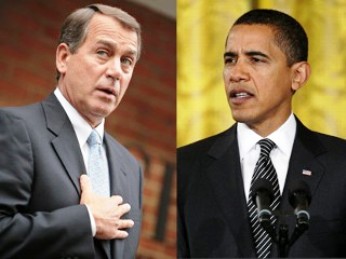“I place but little dependence on the honesty and truthfulness of a large portion of the Senators. A majority of them are small lights, mentally weak, and wholly unfit to be Senators. Some are vulgar demagogues… some are men of wealth who have purchased their position… [some are] men of narrow intellect, limited comprehension, and low partisan prejudice…”– unknown Washington Cabinet member, Profiles in Courage, (page 22).

On a small shelf in my office sits a copy of then, Senator John F. Kennedy’s 1955 Pulitzer Prize-Winning Profiles in Courage.The book is a collection of biographical stories about eight United States Senators who, in a moment of crisis, demonstrated the political courage and integrity to do the right thing in spite of their party, and in some cases, popular opinion.
“A nation which has forgotten the quality of courage,” Kennedy wrote, “which in the past has been brought to public life is not as likely to insist upon or reward that quality in its chosen leaders today – and in fact we have forgotten.
“We may remember how John Quincy Adams became President through the political schemes of Henry Clay, but we have forgotten how, as a young man, he gave up a promising Senatorial career to stand by the nation. We may remember Daniel Webster for his subservience to the National Bank throughout much of his career, but we have forgotten his sacrifice for the national good at the close of that career.”
Right now, two former Senators would easily qualify for Kennedy’s list; two men who speak with reason and courage in spite of the dictates of their respective parties: former Democratic Senator Erskine Bowles and former Republican Senator Alan Simpson.
“If we continue down our current path,” the two write in a recent op-ed, “debt will eclipse the size of the entire economy just a decade from now, and by the mid-2030s will be so high that CBO doesn’t bother measuring it. The consequences of this path are grave: Slower economic growth, more taxpayer money going to pay for interest on the debt, less flexibility to address important needs or future emergencies, and — sooner or later — the most predictable financial, fiscal and economic crisis we have ever faced.
“But it doesn’t have to end this way; we do control our own destiny…
“What this country needs — and what the American people deserve — is a $4 trillion-plus, gimmick-free fiscal consolidation package that stabilizes and then reduces our debt as a share of the economy. Such a plan need not look exactly like the Fiscal Commission plan we produced, but it must cut wasteful or low-priority spending everywhere — in both the domestic and defense budgets, as well as the tax code where actual spending is dressed up as deductions, credits and other preferences. More importantly, this package must tackle the biggest source of our burgeoning debt — growing entitlement spending…
“Whether all at once or in parts, we need a comprehensive plan, based on the principle of shared sacrifice, to truly get our fiscal house in order. We know, from numerous discussions, just how many members of Congress understand this — and just how much the public is disgusted by it all and demands the crafting of that plan. The problem is real and the solutions are painful, but if Washington can lead then there is a way out.”
In Profiles, Kennedy eloquently sums up the issue of competing interests and pressures that members of Congress face, but cautions what they risk losing if they fail to live up to the highest aspirations of their public responsibility.
“He cannot ignore the pressure groups, his constituents, his party, the comradeship of his colleagues, the needs of his family, his own pride in office, the necessity for compromise and the importance of remaining in office. He must judge for himself which path to choose, which step will most help or hinder the ideals to which he is committed.
“He realizes that once he begins to weigh each issue in terms of his chances for re-election, once he begins to compromise away his principles on one issue after another for fear that to do otherwise would halt his career and prevent future fights for principle, then he has lost the very freedom of conscience which justifies his continuance in office. But to decide at which point and on which issue he will risk his career is a difficult and soul-searching decision.”
“To be courageous,” Kennedy says, “requires no exceptional qualifications, no magic formula, no special combination of time, place and circumstance. Politics merely furnishes one arena which imposes special tests of courage…
“For [courage] each man must look into his own soul.”
The demands on Congress are perhaps greater now than anything they have experienced in some time. However, now is the time to place statesmanship above partisanship. Now is the time to place reason and courage above individual agenda. Now is the time for politicians to look into their own souls and provide the leadership they were elected to provide.
Comments










